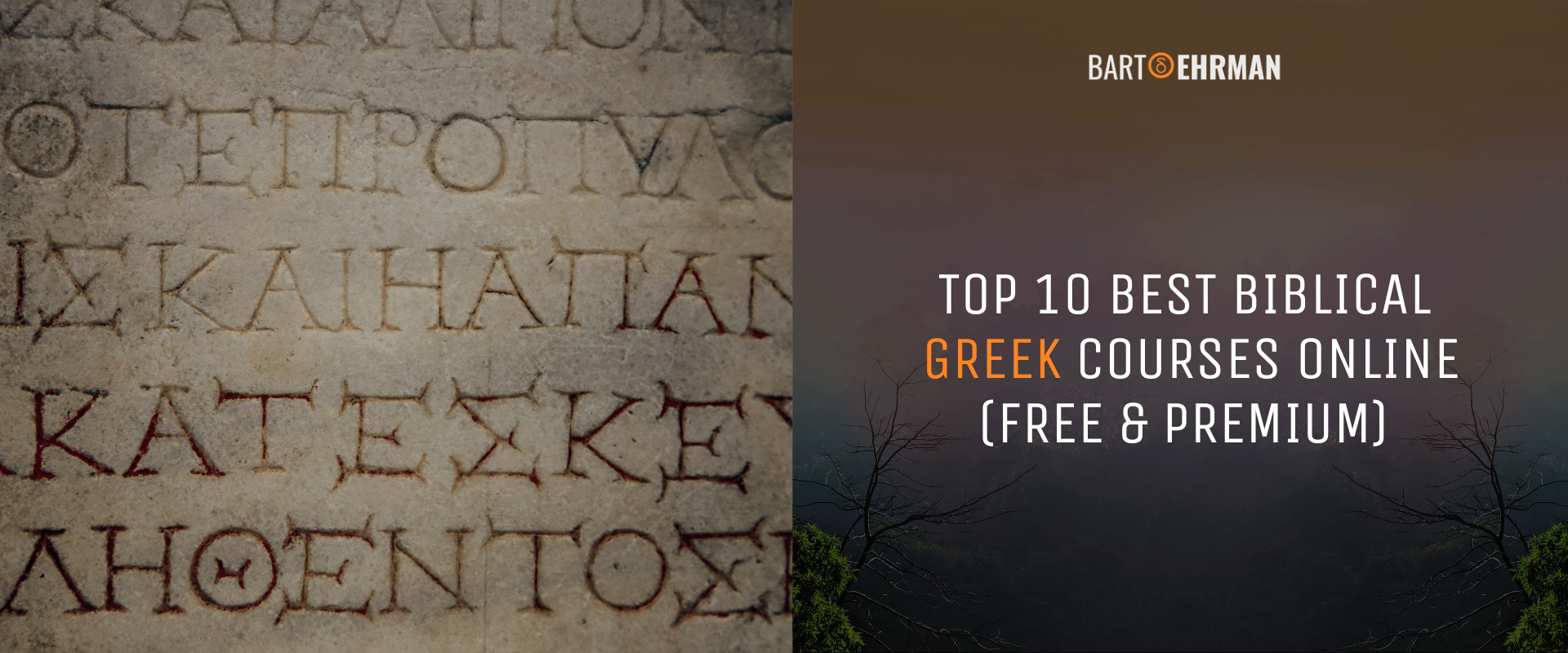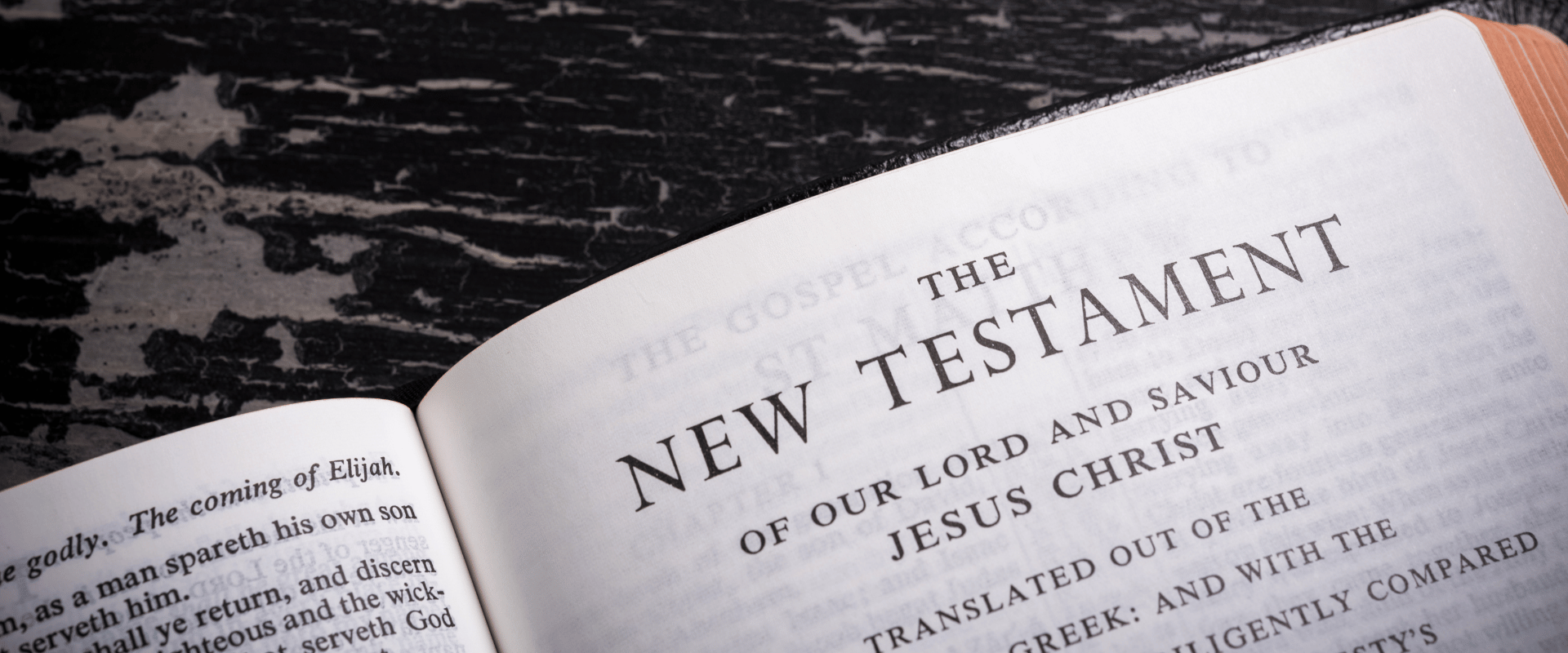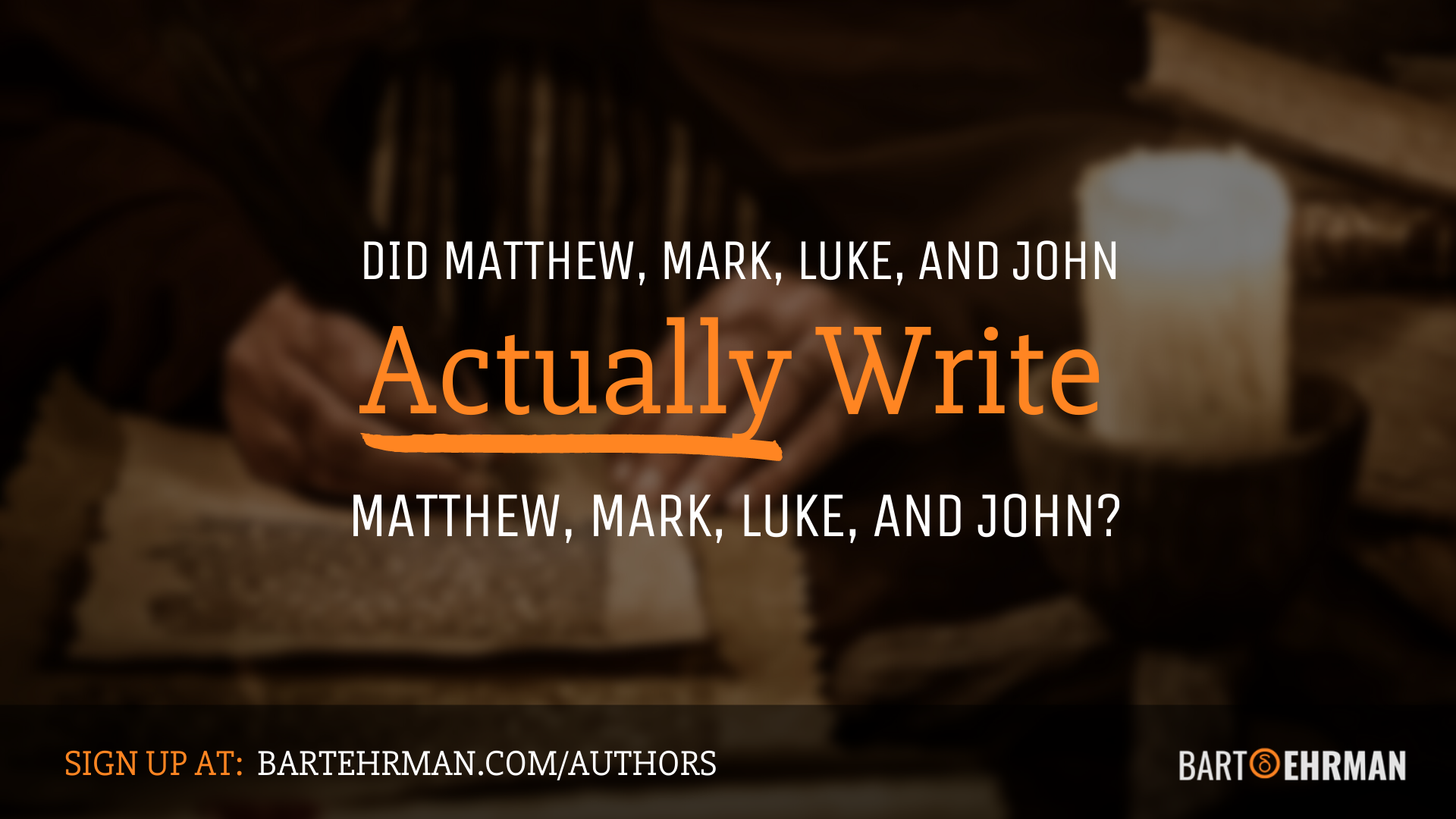Best Biblical Greek Courses Online (Free & Premium)

Written by Joshua Schachterle, Ph.D
Author | Professor | Scholar
Author | Professor | BE Contributor
Verified! See our editorial guidelines
Verified! See our guidelines
Date written: April 19th, 2025
Disclaimer: The views and opinions expressed in this article belong to the author and do not necessarily match my own. - Dr. Bart D. Ehrman
Learning biblical Greek — otherwise known as Koine Greek — can be a difficult but rewarding process that opens up a deeper understanding of ancient texts, including the New Testament and other early Christian writings. Whether you’re a complete beginner or looking to expand your language skills, there are numerous online courses, apps, and resources to help you on your journey. Which are the best Biblical Greek courses, and why should you choose them?
In this guide, we’ll explore the top Koine Greek courses available today, highlighting their features, pros, cons, and what makes them unique. Whether you’re on a budget or willing to invest in a more structured program, you’ll find a course that suits your needs and learning style.

Best Biblical Greek Courses
Top Overall Online Course for Learning Koine Greek:
Ratings: An average of 4.7 out of 5 stars on the Great Courses website, with many participants giving highly positive feedback
Pros
This online course is taught by Hans-Friedrich Mueller, the Thomas Lamont Professor of Ancient and Modern Literatures at Union College. He is a classicist and teaches Latin and ancient Greek, as well as famous works in those languages such as the Iliad and Aeneid so his credentials are impeccable. The course consists of video lectures geared toward total beginners and includes readings from the Gospels, the Iliad, and other ancient Greek literature.
Cons
It’s a bit pricey at $339 for 36 lectures of around 31 minutes each. Also, ancient Greek differed from era to era, like any language, and so the Greek of the Iliad, for example, is a bit different from Koine Greek, the Greek of the New Testament, which may confuse some learners.
How Long to Complete the Course: As I said, the course consists of 36 half-hour video lectures. Learners can go at their own pace.
Levels of Courses: The entire course is geared toward beginners and represents a one-year college course as taught by Mueller at Union.
Top Koine Greek Course For Beginners (and Lowest Priced):
Ratings: N/A. However, there are many testimonials on Mounce’s site attesting to the quality of the course. In addition, since many have recommended his textbook for beginning Greek, the online course, which is aligned to his textbook, is likely to be helpful.
Pros
Bill Mounce is the author behind Basics of Biblical Greek, one of the standard biblical Greek textbooks used in seminaries and theological schools worldwide, as well as a whole series of supplemental materials like workbooks. Many of the best Koine Greek courses feature such resources to enrich the learning process. This online starter course is not free, but it contains easy-to-understand video lectures you can watch and rewatch.
Cons
The only downside of this program, besides the price ($89 for a full year of online access), might be that it is confessional in nature. That is, Mounce is a devoted Christian and wants Christians to take the course to become better Christians. If you’re not a Christian, this might be slightly annoying but certainly doesn’t detract from the quality of the lessons.
(Affiliate Disclaimer: We may earn commissions on products you purchase through this page at no additional cost to you. Thank you for supporting our site!)
How Long to Complete the Course: As I said above, the video lectures can be done at your own pace. There are 16 hours of videos in all.
Levels of Courses Offered: The lectures start with Biblical Greek First Year (Track 1), then Biblical Greek First Year (Track 2,) and finally Biblical Greek Second Year.
Free Top Biblical Greek Courses Available Online
Ratings: N/A. However, everyone that has commented on the lectures on YouTube gives a positive review, and I agree that it is more than adequate if you’re a beginner.
Pros
For those seeking an alternative to the best apps to learn Koine Greek, this is a series of low-tech instructional videos made by Mark Schuler, professor of theology, Greek, and archaeology at Concordia University. It is entirely free and contains all the basic information, including history, grammar, and usage for a beginner to establish a useful foundation.
Cons
Because it is low-tech, this course is not an exciting or entertaining series. Schuler lectures behind the scenes with slides illustrating his points and providing visual support. In addition, while it’s nice that it’s free, the paid courses come with far more resources, like Greek-English dictionaries. This is a minimal approach.
How Long to Complete the Course: There are 31 free videos ranging from 13 minutes to 33 minutes each. However, you can go at your own pace and even repeat lessons as often as you want.
Levels of Courses: This appears to cover one semester’s worth of a biblical Greek class as given in a college classroom.
Ratings: The course has received an average rating of 4.5 out of 5 stars on The Open University’s website.
Pros
This course is completely free and assumes you have no background in ancient Greek. It starts by teaching the alphabet, and by the end, you are reading ancient Greek inscriptions such as Alexander the Great’s dedication of the temple of Athena Polias.
Cons
The course is all text-based, with no video content, a format which may not work for some. It’s also brief, with a lack of detailed explanations that beginners could probably use.
How Long to Complete the Course: The course consists of eight reading-based online lessons, each with a set of sub-lessons. It is self-paced.
Levels of Courses: As I said, the course assumes the learner is an absolute beginner and contains probably about a semester’s worth of material, making the learner basically competent in reading elementary Greek by the end.
Ratings: N/A. There are no official user ratings on the site, but a quick web search shows that most people find the site’s resources as helpful as I do.
Pros
Ginoskos is a website which has free courses in both biblical Greek and Hebrew, as well as other languages from early Christianity such as Aramaic (the language Jesus spoke), Coptic, and Syriac. It also has other free resources like lists of frequently used biblical vocabulary in Greek and Hebrew which are very helpful.
Cons
Like The Open University’s courses, these lessons are text-centered instead of video-based, which may be a turn-off for some people. Also, while beginners can certainly get a decent foundation from the free foundational course, those interested in more advanced language learning will have to look elsewhere.
How Long to Complete the Course: Each lesson provides learners with explanations and examples, followed by exercises to test understanding and application. It is entirely self-paced with no set amount of time to complete it.
Levels of Courses: The first course, Biblical Greek Foundations, contains 12 lessons. The only other level of Greek course is called Biblical Greek Advanced. It has eight lessons, but for some reason, four of them are currently unavailable.

Best App for Learning Koine Greek:
Ratings: 4.5 stars on the Google Play Store and 5.0 stars on Apple’s App Store. Although this app does not have a massive quantity of reviews, it is highly popular with beginners and scholars alike. Many testimonials on the site attest to its effectiveness and appeal.
Pros
People wanting an app-based alternative to the top Koine Greek courses should consider Biblingo because the app is very easy and intuitive to navigate. For total beginners who don’t even know the alphabet yet, there are video lessons to get them started. Instead of focusing on explicit grammar, the program mostly teaches the language intuitively, with interactive videos and exercises that I found engaging.
Cons
Frankly, it would be nice to have the grammar explained a bit more explicitly in some cases. A new learner can certainly pick up patterns of language through this app and learn to read adequately, but there are times when understanding the principle behind the pattern would be beneficial too.
How Long to Complete the Course: The course begins with the basics of the alphabet, if that is needed, and then progresses gradually up to an advanced level where one can read and interpret long Bible passages. Each lesson consists of a sequence of Vocabulary, Grammar, and application. Again, it is self-paced so there is no fixed time to get through them.
Levels of Courses: The course consists of language learning modules which have to be completed in sequence. Each module has three levels, with a total of 26 units each, and four sub-lessons per unit.
Conclusion
When I started graduate school, I was excited to learn biblical Greek and Hebrew. I wondered whether being able to read the original languages of the Bible would help me to understand it better and to contextualize its words.
This indeed turned out to be the case, although not always in ways that I expected. Additionally, reading the original languages will certainly give any earnest student a gateway into the ancient worlds from which biblical writings emerged. Knowing the language is crucial for understanding culture, and understanding culture is essential if we are to grasp how and why biblical writings came to be.
Whether you are just dabbling in these languages or plan to go on to an academic career, I highly recommend checking out the options on this list of best biblical Greek courses, making use of one or more of these resources.
FREE COURSE!
WHY I AM NOT A CHRISTIAN
Raw, honest, and enlightening. Bart's story of why he deconverted from the Christian faith.
Over 6,000 enrolled!

